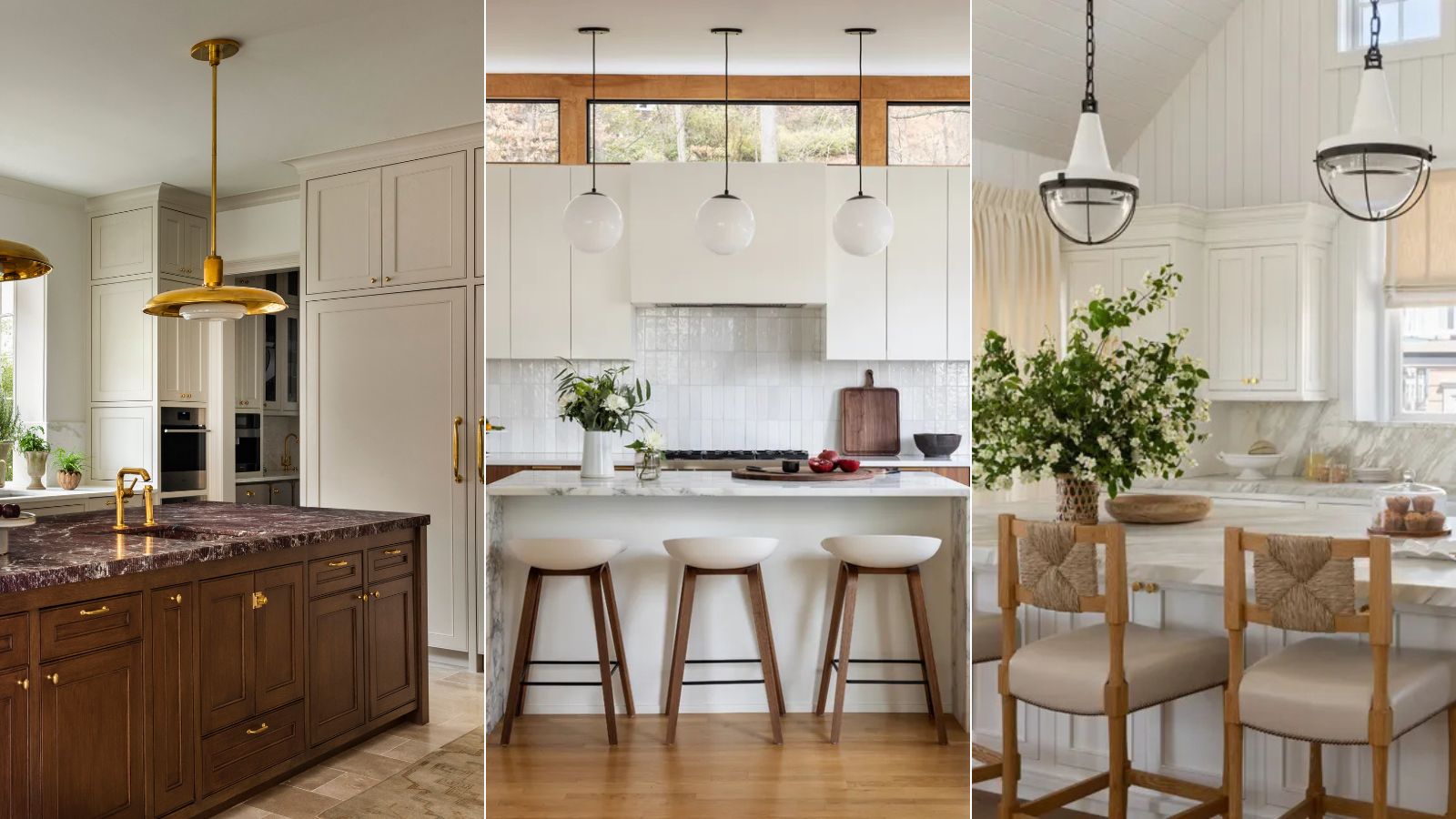
Neutral kitchens are endlessly enduring, transitioning seamlessly as trends come and go. But if your space is beginning to feel bland and uninspiring, it might be time to add a contrasting color to your scheme.
Now, we aren't saying you have to completely change your neutral kitchen to something more vibrant – simply bringing in a subtle contrast to an element of your design is enough to reintroduce a sense of interest and style.
But what color is best to bring a neutral kitchen back to life? Here, we ask experts for their take – and one color palette has taken the crown!
What's the best color to add to a neutral kitchen in 2025?
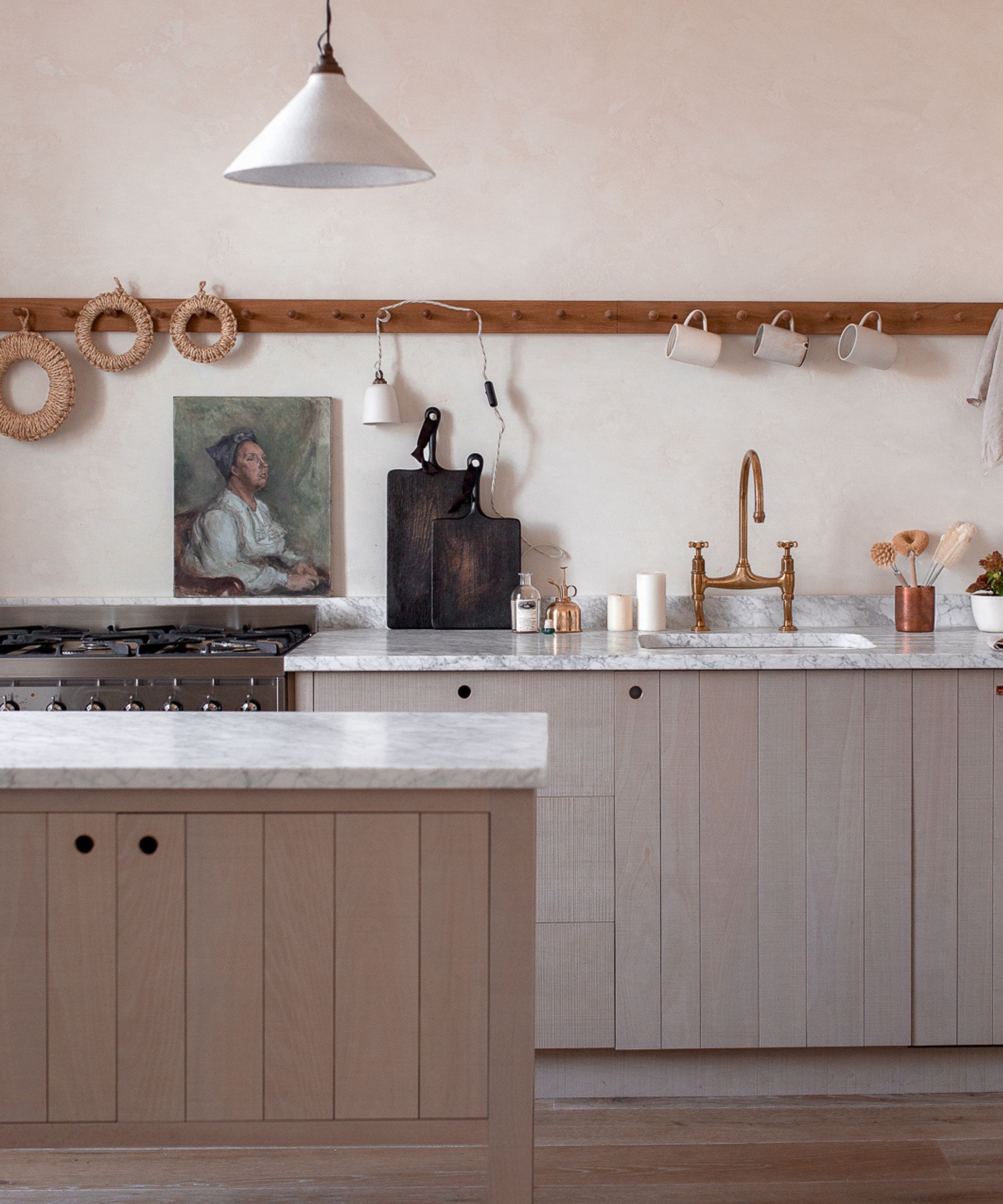
Even if you prefer neutral schemes, you can still add color to a kitchen without changing the aesthetic of the space. No one is suggesting adding bright pink and yellow to your kitchen, but introducing a nuanced color will add interest and subtle contrast while preventing the scheme from feeling bland.
'In a kitchen, where various surfaces like cabinets, islands, and walls provide multiple opportunities for color application, you can choose to use as little or as much color as you desire,' says Hannah Yeo, senior manager of color marketing at Benjamin Moore.
If you still want your kitchen to feel neutral, the best colors to add to your scheme are rich, dark tones – especially browns. With so many shade variations to choose from – including natural wood tones – you can create almost any kitchen aesthetic you desire, without introducing too much vibrancy.
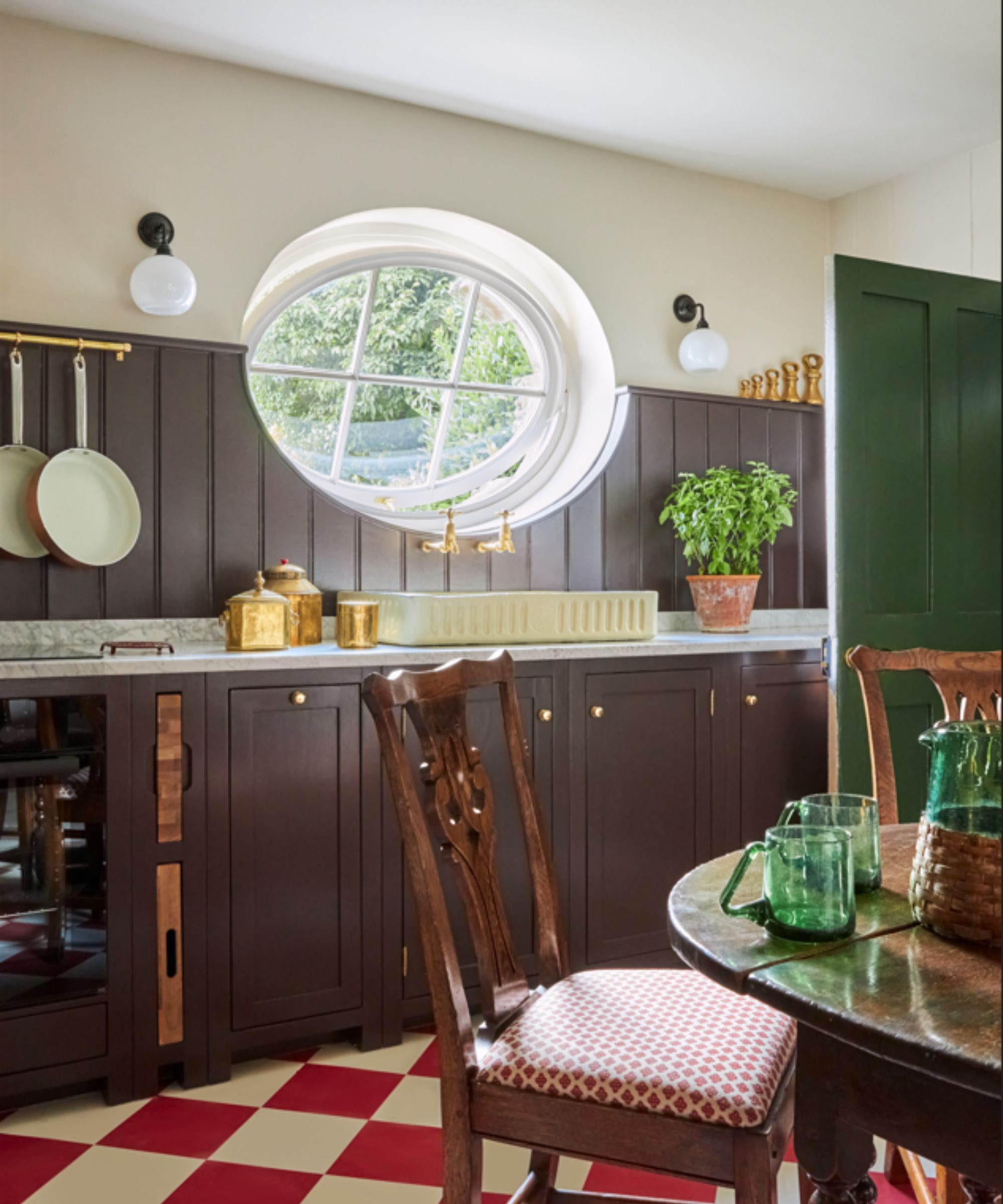
'Brown adds depth and refinement to an otherwise neutral kitchen. In an open floor plan, consider accenting the dining area walls with a rich, chocolaty hue. This visually defines the space without breaking the neutral color scheme,' suggests Hannah.
In many ways, brown acts as a neutral, but it's also a rich, timeless hue. Imagine a warm white kitchen centered by a dark brown island – it won't take away from your neutral color palette, but it will add a more visually interesting finish to your space. It's just a case of choosing the right shade for your kitchen.
'Whether it’s on walls, cabinets, or immersing yourself in a color-drenched kitchen, deep browns add depth and mood. An earthy brown creates a warm, welcoming vibe that feels cozy and intimate, [or] to lighten the effect, use a mid-tone brown as the backdrop and accent with vibrant pops of color for contrast,' she adds.
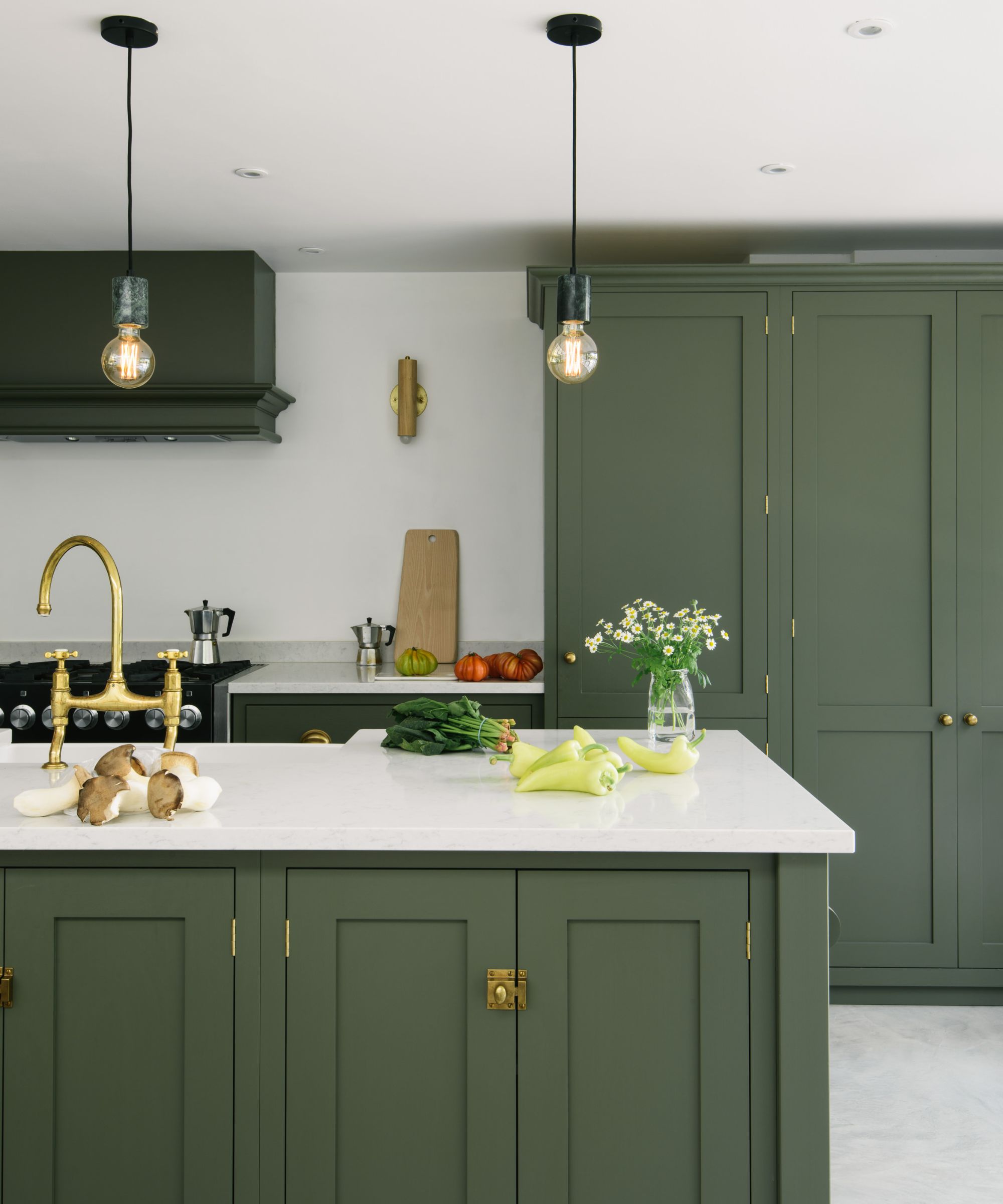
However, brown might not be to everyone's tastes. There are plenty of alternatives to brown that add just as much style and versatility, without changing the aesthetic of your scheme too dramatically.
'A twist on earthy tones, deep olive hues infuse the space with personality while maintaining a neutral color scheme. Colors like Tate Olive HC-112 offer a sophisticated and timeless feel with a touch of modernity,' says Hannah.
'Warm grays are a great alternative to browns. With neutral undertones, colors like Chelsea Gray HC-168 can pair well with a wide range of hues, making them versatile and easy to work with. Use them on the island or lower cabinets to anchor the kitchen and balance the space with light-colored countertops and backsplashes.'
3 subtle ways to introduce color to your neutral kitchen
Whether you embrace brown hues or opt for a softer tone like olive green, here are a few ways you can add color to your neutral kitchen to give it a new lease of life for the year ahead.
1. Make a statement with your kitchen island
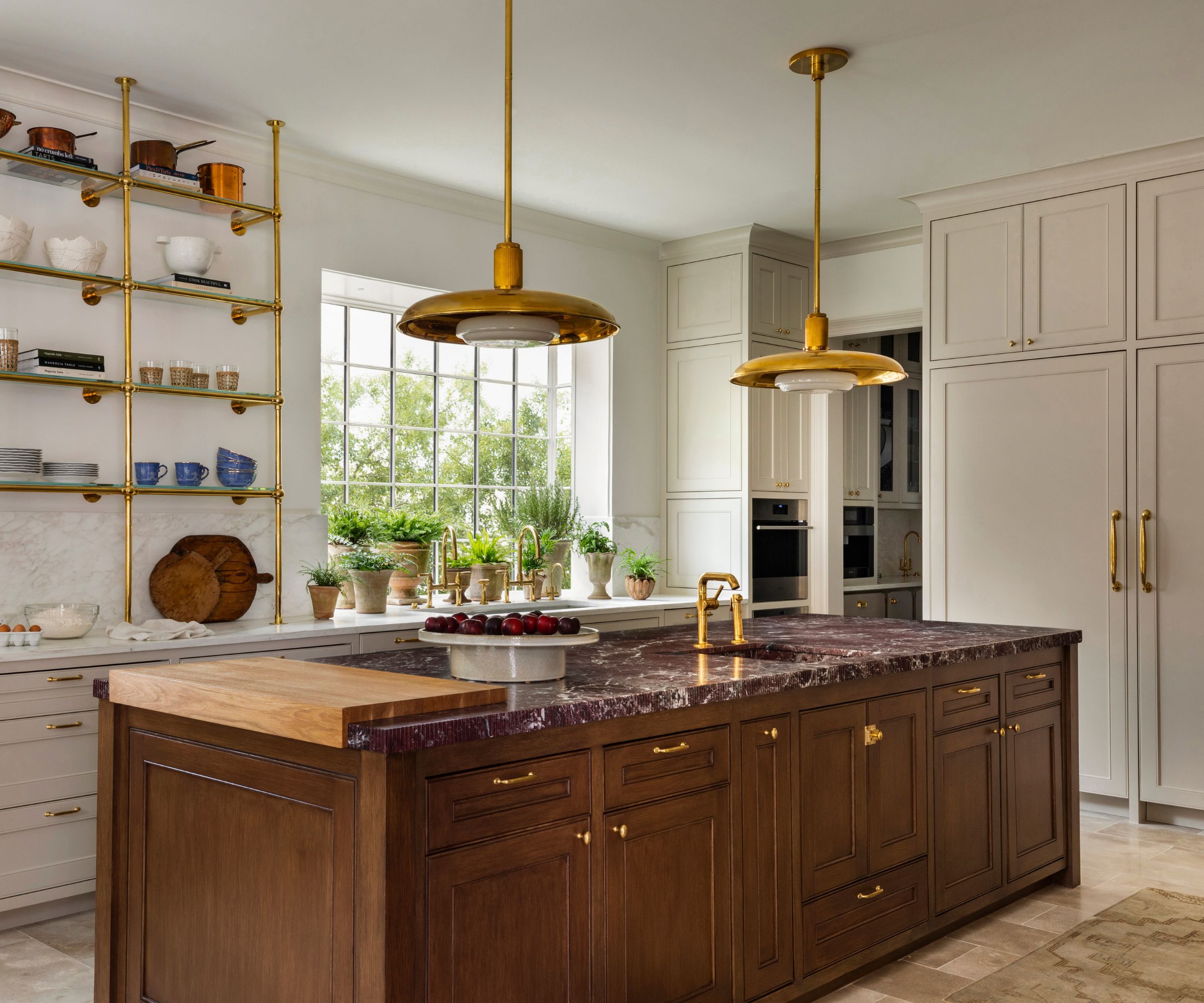
Your kitchen island is the perfect place to add a subtle pop of color while maintaining a neutral kitchen design. Introducing a deeper hue here gives your scheme more depth and interest when paired with neutral hues elsewhere.
'A kitchen island is the perfect place to introduce a bold shift in color or texture, creating a stunning focal point. Consider staining the island a rich, dark brown to contrast with light, neutral surroundings, anchoring the space with warmth and depth,' suggests interior designer Marie Flanigan.
'This unexpected pop of color feels intentional yet timeless, adding personality without overwhelming the room. By focusing on the island, you can bring in a new palette while maintaining the overall harmony of the kitchen design.'
2. Bring in new hues through decor
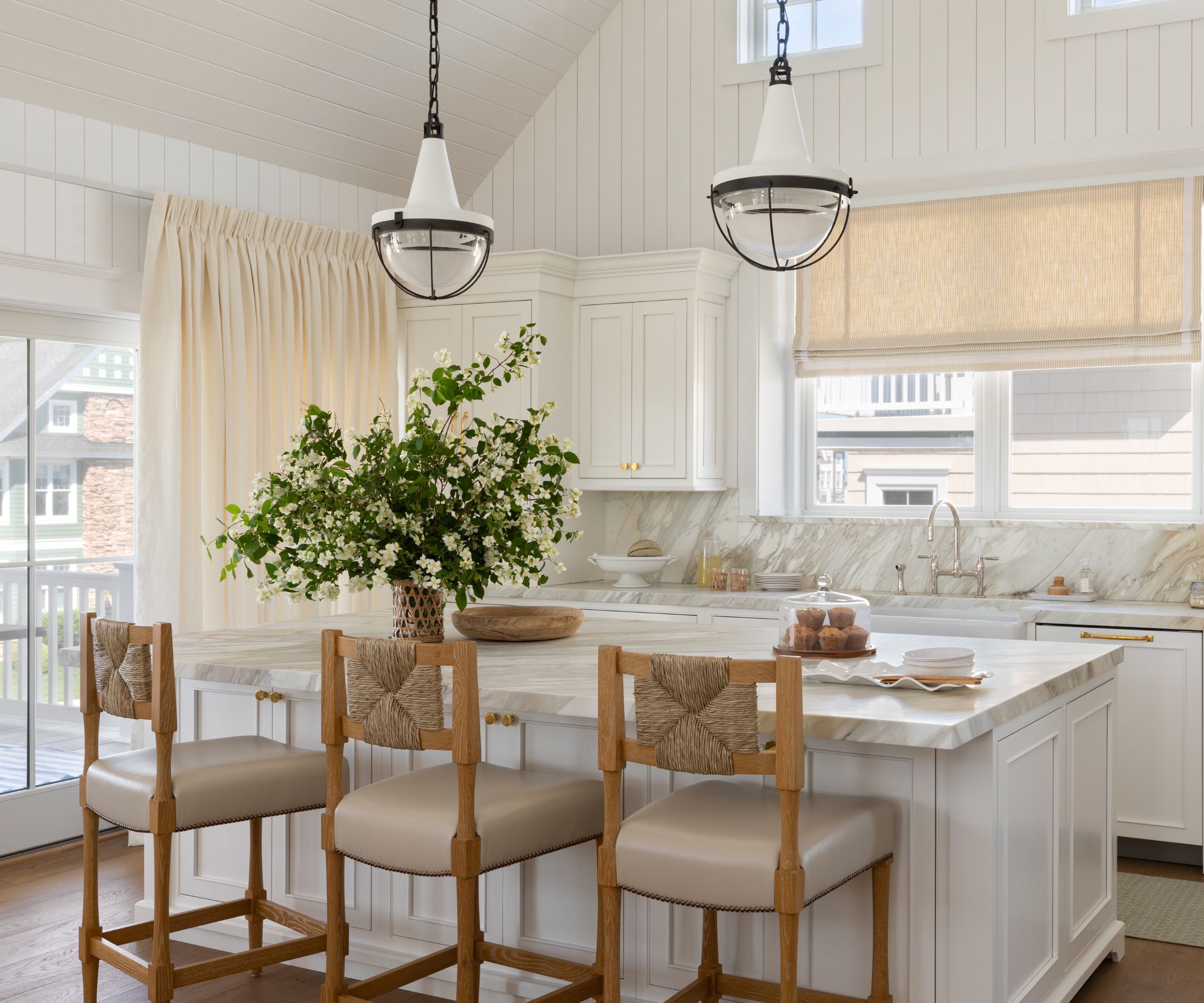
For a really simple approach to adding color, embracing decor in your chosen color – be it brown, deep green, or warm gray – will instantly elevate the overall look and feel of your design.
This kitchen is a perfect example – the all-white kitchen is filled with very similar tones, which can feel flat and bland. By introducing wooden decorative elements like the bar chairs, vase, and fruit bowl, the design instantly feels elevated and visually interesting.
This woven vase adds loads of texture to a neutral kitchen. Display it on top of an island filled with seasonal blooms or branches.
If you prefer kitchen decor that serves a purpose, this pastry cloche is stylish and functional. Fill with sweet treats or fruit for easy access.
This bar stool perfectly encompasses that mix of brown and neutral in a kitchen. The wooden frame is made comfy with a neutral seat cushion.
3. Focus on the cabinets

If you're willing to go more daring with color, painting your cabinets (even just some of them) is a timeless way to create a more dynamic design, especially paired with light kitchen countertops.
'Rich, nutty brown hues reminiscent of walnut or mahogany can instantly elevate your kitchen’s aesthetic. Pairing these with neutral wall colors or countertops adds a touch of traditional charm,' says Hannah.
'Consider painting only the lower cabinets with a deeper hue. This visually grounds the space while maintaining an airy and balanced feel. Options like Whitall Brown HC-69, Classic Brown 2109-10, or Indian River 985 can be great choices for your cabinets.'
Deeper, richer tones like brown add contrast, interest, and a more stylish finish to your neutral kitchen. Adding color won't disrupt the pared-back palette you've created – it will simply elevate it.







